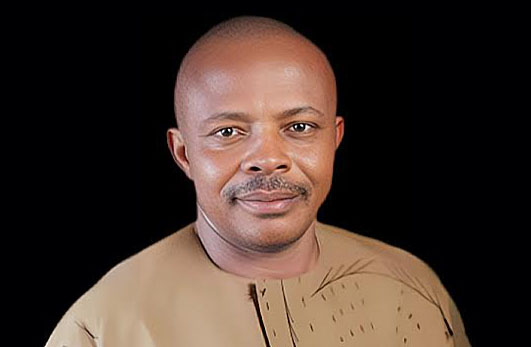
The Nigeria Labour Congress (NLC) and the Trade Union Congress’s (TUC) middle-ground proposal of N615,000 national minimum wage is ambitious. But much more herculean is the likelihood of compliance by states and the private sector that struggled with the now outdated N30,000 benchmark, GLORIA NWAFOR report
The agitation for a new national minimum wage, particularly in the wake of the commemoration of 2024 Workers’ Day, has become a pressing issue that is resonating nationwide.
Workers, who are facing dire socioeconomic challenges, including rising inflation, and the soaring cost of living, have continued to express their frustrations while demanding a fair and adequate wage that reflects current economic realities.
The implementation of a new national minimum wage became ultra-imperative as the cost-of-living crisis continued to escalate. With the removal of fuel subsidies, liberalisation of exchange rates, and other economic policies impacting negatively on the purchasing power of workers, it has become clear that the current minimum wage of N30,000 is insufficient to meet the basic needs of workers and their families.
While statistics paint a grim picture of the economic hardship faced by Nigerian workers, the reality is that most states may not have the financial muscle to implement the new minimum wage.
A readymade indication is the First Quarter budget implementation report that painted a frightful picture. It states that some states fall below their projected revenue for the 2023 fiscal year based on their performance in the First Quarter.
For instance, Kano, with a population of 150,000 workers at the end of the First Quarter, generated below 25 per cent of its IGR. With a projected IGR of N40.33 billion and a quarterly projected IGR of N10.08 billion, it generated about N7.38 billion or 18.29 per cent.
The state’s external debt burden, according to the recent report by the DMO, rose to $107.92 million in 2023, up from the previous year’s $100.67 million, showing an increase of 7.2 per cent.
Findings also showed that 17 out of 36 states cannot pay up to six months of the total personnel cost approved in the fiscal budget in 2023 if the IGR were used.
To run their budget, the affected states would depend on local or external borrowings, multilateral loans, FAAC, grants, and aids.
The same scenario is playing out in Bayelsa State where in the fiscal appropriation for 2023, the budget for personnel cost was N81.78 billion, which is N6.81 billion if broken down monthly.
The state, however, generated an IGR of N15.09 billion. So, if the IGR is used to offset personnel costs, it can only pay for two months.
Similarly, the personnel cost approved for Plateau State, in 2023 was N39.83 billion (N3.31 billion monthly), but the state generated an IGR of N15.93 billion, which can only offset five months of personnel expenditure.
In the midst of all these, organised labour led by the Nigeria Labour Congress (NLC) and the Trade Union Congress of Nigeria (TUC), proposed a new minimum wage of N615,000, arguing that anything below that amount would be considered a “starvation wage.”
As the NLC and the TUC insist that the demand for a living wage is justified, the responses from state governors, who have more workers than the Federal Government have raised concerns regarding their willingness to implement the wage law when passed.
While some governors have also expressed their commitment to the negotiation process and promised better wages for their workers, some of them have equally raised concerns about the feasibility of paying the proposed amount.
As the fiscal constraints faced by many states, coupled with the economic downturn continue to fester, the debate over the new minimum wage has highlighted the need for a collective agreement that takes into account, the interests of both workers and employers.
In other words, while workers deserve a fair wage that reflects the current economic realities, businesses also need to be able to sustainably pay their employees without compromising their operations.
The new national minimum wage issue is further complicated by the financial mismanagement, and profligate spending of political officeholders at both the state and federal levels, where reports of exorbitant salaries, allowances, and extravagant expenditures by government officials paint a stark contrast to the economic hardships faced by ordinary workers.
Howbeit, as the proposed amount of N615,000 appears ambitious, it is essential to consider the economic realities and challenges faced by workers in the country.
For context, in April 2019 when the N30,000 minimum wage came into effect, during the administration of former President Muhammadu Buhari, while the exchange rate was N360 per dollar, the inflation rate stood at 11.40 per cent, and a 50kg bag of rice, a common staple food in every household was sold for N7,000.
Also, the unemployment rate as of the Third Quarter (Q3) of 2018 was 23.1 per cent and rose to 33.3 per cent in Q4 of 2020, according to the National Bureau of Statistics (NBS).
Five years down the line, and with the same N30,000 still in place, exchange as of April 2024, the month that the current minimum wage expired fell to $23, and inflation grew to 33.2 per cent in March 2024, while a 50kg bag of rice, between February and March went as high as N90,000, but later fell to N70,000 in April due to the fall of the dollar. The unemployment rate was 33.3 per cent as of Q4 of 2020, but with the revised method, it was pegged at five per cent in Q3 of 2023.
Despite these challenging times, workers have continued to appeal to political leaders to improve their welfare as the cost-of-living soars.
In defending the proposed wage, the NLC President, Joe Ajaero, in an interview said that organised labour’s proposal remains the “most realistic” considering the inflation in the country, while the President of the Nutrition Society of Nigeria, Wasiu Afolabi, warned that the surging costs of goods could persist for much longer if insecurity challenges facing agricultural productivity remain unabated.
He said that the implication is that people, who are already faced with low purchasing power, would just adjust their priorities from what meets their nutritional requirements, to eating for sheer survival.
With the upward trajectory of inflation, continual depreciation of the naira, and a monthly wage floor that has fallen to $23, which has pushed the country to the second lowest globally, economists maintain that organised labour has a point to underscore regarding the agitation for a decent living wage.
From the labour’s perspective, much more important than the amount that is paid as minimum wage is the need to stabilise the value of the Naira to strengthen the purchasing power of workers.
With the liberalisation of the exchange rate as well as the removal of fuel subsidies, monthly allocations to the 36 state governments have doubled in the past eight months.
While there is more money for the state governors, there is also more money for the Federal Government as the 46 Ministers appointed by President Bola Tinubu are reportedly gulping N29.91 million monthly for payment of salaries.
Indeed, each Minister collects N650,136 or N7.8 million yearly, excluding other unaccounted allowances and benefits.
Deputy President of the Trade Union Congress of Nigeria (TUC), Dr Tommy Okon, flayed how most political officeholders embark on spending spree amid an economic downturn, stressing that governors’ jumbo packages even as they left behind in office about N3.06 trillion debt last year.
He said as Nigeria languishes in debt laced with unending economic crisis, it would have been a given that the state governors would cut their coat according to the cloth, but the reverse has been the case as some of the state chief executives have been leading a profligate lifestyle.
He argued that the removal of fuel subsidies, increases in taxes, and others are enough for the state governments to wake up to the existing realities of proffering timely solutions to the economic maladies that plunged the states and citizens into difficulties.
According to data from the DMO, the debt figure of the states included N2.27 trillion in domestic loans and $1.71 billion in foreign borrowing.
Despite calls for a reduction in the cost of governance, last year, the Chairman of the Revenue Mobilisation Allocation and Fiscal Commission (RMAFC), Muhammed Shehu, while justifying the remuneration of elected or politically appointed officeholders, said many of them get jumbo salaries.
In 2023, the 36 states of the federation spent N1.71 trillion on recurrent expenditures, including allowances, foreign trips, office stationery, and aircraft maintenance in the first nine months of 2023, according to data obtained from the RMAFC.

Also, the state governments borrowed about N46.17 billion from three banks to pay salaries between January and June 2023.
Another, among others, is how Nigerian senators illegally shared N218 million as “holidays” allowance with each serving senator receiving not less than N2 million as allowance before proceeding on vacation and payment of N2.9 billion on SUV cars for the Presidential Villa.
Putting this outlandish lifestyle into perspective, stakeholders think that labour was justified in asking for a living wage.
However, while they considered the government’s lean resources, they called for a collective agreement that would be mutually beneficial to all.
They argued that since the removal of subsidy, many states are now feasting on the proceeds of fat FAAC allocation.
Director-General of NECA, Adewale-Smatt Oyerinde, who fumed at the N615,000 wage floor by organised labour, could not disclose what the association, which is part of the tripartite committee on the employers’ side, pencilled down as the figure to be paid to workers as employers.
Oyerinde, who lamented businesses’ closure and the recent hike in electricity tariff, queried businesses in today’s Nigeria that could pay N615,000 as minimum wage to the most vulnerable person.
On the ability and willingness to pay the new wage, it will be a miracle for states that could not pay the N30,000 current minimum wage to pay a higher figure.
Tommy Okon, who is also the President of the Association of Senior Civil Servants of Nigeria (ASCSN), insisted that the governors could pay, especially now that every state is taking a fat cut from FAAC allocation since the removal of fuel subsidy.
“The president has given a directive and he believes in a living wage and there is no moral justification that governors cannot pay, it shouldn’t come up at all,” he stated.
A public affairs analyst, Jide Ojo, opined that the proposed N615,000 minimum wage by labour would cause an economic dislocation for many states.
Giving his speculation of between N60,000 to N100,000, he said if labour insisted on N615,000 there would be no other way than for the states to downsize.
Though the N615,000 monthly minimum wage is a proposition, finding a solution that will compel state governments to pay the wage floor is perhaps more important than the actual figure that is eventually agreed upon.













